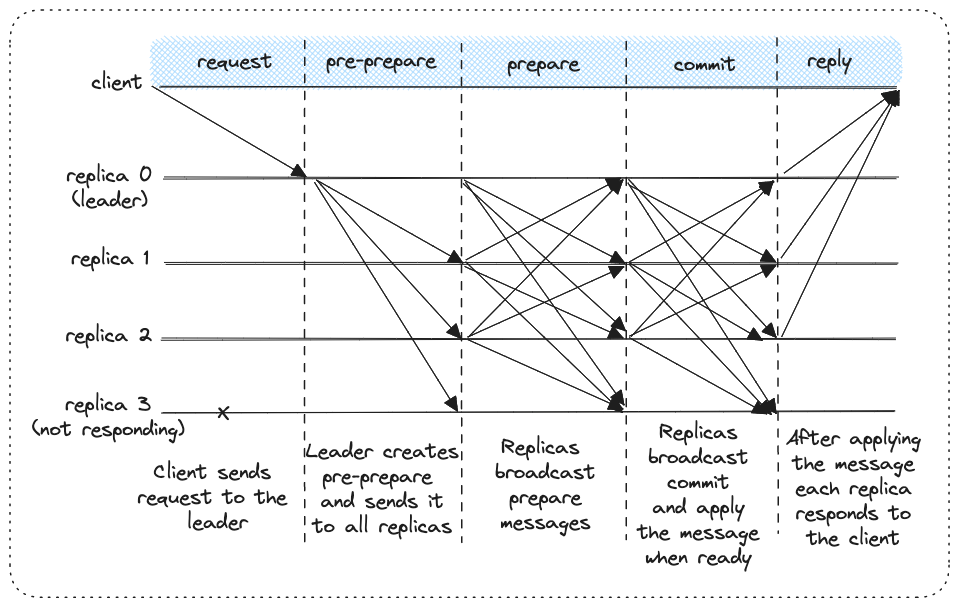A brief discussion of the Practical Byzantine Fault Tolerance (PBFT) algorithm
Marton Trencseni - Sat 06 September 2025 • Tagged with lamport, byzantine, generals, distributed, signed, signature, pbft, blockchain, paxos, raft
This article explains how Practical Byzantine Fault Tolerance (PBFT) builds on Lamport’s theoretical consensus algorithms by introducing leaders, quorums, and cryptographic optimizations to make Byzantine consensus practical, contrasts it with Paxos and crash-fault tolerance, and explores its influence on modern blockchain protocols.




